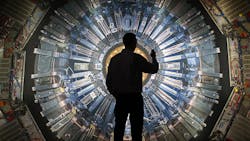We Shouldn’t Trust New Tech. We Shouldn’t Fear It, Either
How should we think about new and future technologies? The two main stances seem to be extreme optimism and extreme pessimism. A better approach would be careful planning and management.
Optimists like to point out that technology has been the greatest force for human welfare in the history of the species. They’re right. Before the Industrial Revolution, societies like the Roman Empire in the 1st century A.D. or Sung China in 1000 A.D. were as rich as people could get. But after fossil fuels, steam engines, electricity and other modern technologies arrived, prosperity in advanced countries rose far beyond anything that had been imaginable before.
The numbers don’t even begin to tell the story. The reality of the poverty that our ancestors experienced — rampant malnourishment, disease, food shortages, lack of sanitation and poor housing conditions — is practically incomprehensible to us now.
For a long time, it looked like the rich colonial powers were hoarding the prosperity of modernity for themselves. But the bounties of modern technology have been spreading rapidly to the developed world. The website Our World in Data, started by Oxford University economist Max Roser, has chronicled this happy trend. Global extreme poverty — the number of people living on less than $1.90 per day in international dollars — has declined rapidly since the end of World War II. This has led to dramatic improvements in health. For example, child mortality has plunged.
The drop in poverty has been worldwide, including in India and sub-Saharan Africa.
This amazing, unprecedented increase in human welfare would not be possible without technology. Fossil fuels, nuclear power, and renewables like hydropower provide amounts of energy that our ancestors could never get from muscle power and wood burning. Modern medicine, construction techniques, agricultural methods, and transportation have created a world where sickness, starvation, and exposure to the elements are rapidly going from common daily realities to rare afflictions. Given the choice, almost no one anywhere would opt to go back to the way people lived in 1817.
So the optimists are right about technology’s promise. But the pessimists also make important points. Technology doesn’t just give people the ability to do more things. It also produces side effects that economists call externalities. Two of the biggest are war and pollution.
Nuclear stockpiles are way down from three decades ago, but there are still more than 15,000 nuclear weapons in the world today, and the number of countries with access to these weapons is proliferating. Future weapons, like genetically-engineered viruses, could be even more destructive and far easier to manufacture. As recent terror attacks have shown with automobiles and firearms, putting cheap destructive power in the hands of the public will inevitably lead to some number of nihilistic, destructive outbursts. The weapons of the future will surely be even cheaper and more powerful.
Meanwhile, climate change looms as a threat to global prosperity. Though renewable energy is increasing quickly, fossil fuels are still the human race’s main energy source, and global carbon emissions remain at very high levels. If more is not done to transition away from fossil fuels, the unprecedented burst of affluence that began in the 19th century might not outlive the 21st.
There are other reasons to be a techno-pessimist. New technologies often have unintended consequences — cell phones enrich our lives in many ways, but they can also exacerbate depression and anxiety. New media technologies flood us with useful information, but they can also sow social chaos and discord. Widely used chemicals can increase cancer rates. Often, these negative effects aren’t enough to cancel out a new invention’s benefits, but it’s hard to know. Technology is an inherently dangerous thing, because it’s hard to do a rigorous cost-benefit analysis until the tech has actually become widely used.
So there are arguments on both sides. But it seems clear that optimism and pessimism both make the mistake of being too passive. Neither cheering nor bemoaning the emergence of new technologies does much to improve outcomes.
Optimists tend to overlook the fact that the technological successes of the past required a lot of social engineering before their benefits became widely shared. Countries like Maoist China and North Korea implemented perverse economic systems that withheld the bounty of modern technology from most of their citizens. And poor countries didn’t really begin to beat poverty until decades after colonialism ended.
Pessimists, meanwhile, often assume that new technologies can be stopped in their tracks by act of popular will. They probably can’t. Even the most impoverished, repressive regimes of the 20th century adopted new technologies, and often suffered their worst consequences. Scientific research and invention, meanwhile, can be forbidden in one country or another, but probably not at the global level: Someone, somewhere, will study even the scariest ideas.
A better approach, then, is technology management. We should be as realistic as we can about each innovation’s potential benefits and dangers. And instead of thinking about how to suppress new technologies, we should think about how to regulate them and channel them toward broad social benefit.
Emerging technologies like genetic engineering and artificial intelligence are at our doorstep, and there is no putting the genie back in the bottle. But letting them develop haphazardly entails large risks. Instead, government and industry need to be funding proactive efforts to bring them into widespread, well-regulated use. In the end, technology is what we choose to make of it.
By Noah Smith, a Bloomberg View columnist. He was an assistant professor of finance at Stony Brook University, and he blogs at Noahpinion. This column does not necessarily reflect the opinion of the editorial board or Bloomberg LP and its owners.
About the Author
Bloomberg
Licensed content from Bloomberg, copyright 2016.
